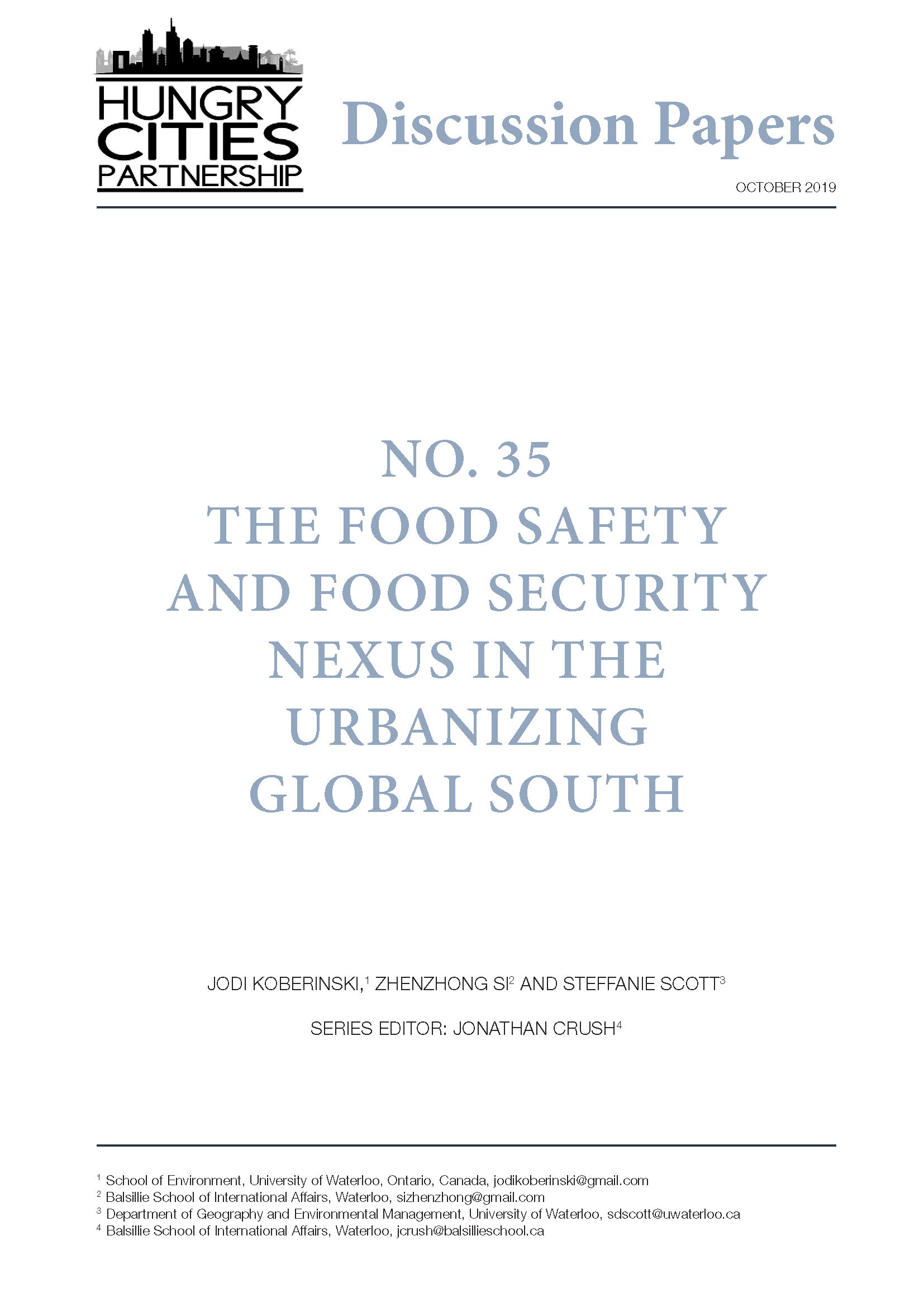Socioeconomic and structural changes in the global food system, driven by rapid urbanization in the Global South, shape the nature and scale of food safety problems as well as the strategies designed to cope with them. These changes create new challenges for ensuring food security, given that food safety is an essential dimension of food security. By reviewing existing studies, this paper summarizes three key types of contaminant (microbiological, chemical, and physical) that compromise food safety. With analyses of three cases (avian flu, genetic modification contamination, and melamine-tainted milk) in the Global South, the paper explores how food safety is being driven and shaped by socioeconomic restructuring, particularly market liberalization in the food sector. The paper then provides an overview of various initiatives being taken by consumers, grassroots organizations, governments, and the food industry to address food safety challenges. It calls for a more holistic understanding of food safety that connects food safety and urban public health, and recognizes food safety as a social and cultural issue connected with the food safety impacts of structural changes in food systems.

